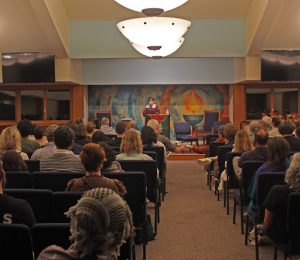Sexual harassment is status quo for young women
Sexual harassment runs rampant for majority of women ages 18 through 24
March 25, 2021
I was scrolling through TikTok one morning, procrastinating my biology homework, when I ran across the hashtag, “97 percent.” I kept scrolling, but there it was again. Over and over, “97%” appeared in my feed. Curious, I clicked on the hashtag, trying to find out what it meant. I regretted it immediately.
With 30.5 million combined views on TikTok, videos with the hashtag “97%” refer to a study that was conducted by U.N. Women UK in January of this year. In a poll of more than 1,000 women living in the UK, it found that 97% of women aged 18 to 24 had, at some point in their lives, been sexually harassed in public. This includes catcalling, unwanted physical contact and worse. Sick to my stomach, I scrolled through testimonials of women sharing their stories of harassment and assault. I was outraged, but not entirely surprised.
I’m the oldest of two daughters, and I was raised to act with an abundance of caution. I carry my keys between my fingers, I never walk alone at night if I can help it and I check the backseat of my car every time I sit down in the driver’s seat. I was taught ways to physically protect myself should I ever have to. What I was not warned about, however, was how cruel someone can be without ever coming near you.
Though the aforementioned study was conducted in the UK, I find it difficult to believe the results wouldn’t be similar in the US, or even here at Wake Forest. Students enrolled at Wake Forest are typically aged 18 to 24, and I can’t help but wonder how many women on this campus have similar stories. If I were to base my guess for that number solely on my personal experience, I’d say it’s comparable to 97%.
The culture of boys lashing out at girls to make themselves feel better is insidious, and it has pervaded Wake Forest. It doesn’t just stop at outright harassment. Yes, I was catcalled walking down Jasper Memory one afternoon last semester, and boys have grabbed me by the waist to move me out of their way. But it’s not only the physical harassment that concerns me.
Speaking solely from what I’ve personally witnessed, I believe that there’s a culture on this campus that promotes a lack of accountability. Boys have said — and will continue to say — lies that violate personal privacy and dignity. They rake the names of young women they barely know through the mud, and they never suffer any consequences. From what I’ve experienced, these accusations are more often than not unfounded, but that’s of little importance. To talk about someone’s personal life without them present and without their consent, whether the words are true or not, is an abhorrent violation of privacy. Hearing secondhand that boys you barely know are spreading rumors about intimate details of your life will turn your blood cold. And then, once you’ve had time to process such knowledge, will make it boil.
In the seven months I’ve attended this school, I’ve met some boys who find it funny to defame girls they don’t know, and I’ve met only a handful of men willing to stand up against them. But the problem not only lies within the perpetuation of disgusting rumors. I don’t often hear boys stand up for these girls. It is everyone’s responsibility — mine, yours, our friends’ — to stop the spread of hurtful lies or half-truths. This school is small enough for word to spread like wildfire, and it can be just as destructive.
So I implore you, do not let your friends, hallmates, or classmates make snide jokes or malicious comments. Stand up for your peers, even if you do not know them intimately. College-aged boys are too old to be acting like middle schoolers, talking about girls they don’t like in the bathroom during class. I urge you to do what I — and hopefully you — believe is right, and do not let other students be pushed around by bullies who should have grown out of these habits already.












